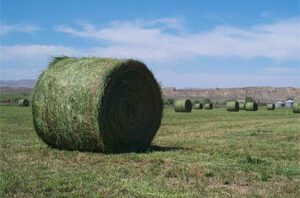Do you want to know if the food you eat and feed your family has been genetically engineered? If you do, you’re not alone. Over 95% of people responding to an MSNBC poll this week on labeling of GE foods have said loudly and clearly, “OF COURSE we want to know!” Over 40,000 people have voted (you can too, here). This follows on an earlier CBS poll finding that 87% people want to know if genetically modified organisms (GMOs) are in their food. Evidently, this is something that people feel strongly about.
Despite overwhelming evidence that Americans are deeply concerned about GE contamination of our food and farms, our public agencies have, in the space of two months, fast-tracked approval of three new risky GE crops: GE alfalfa, GE sugar beets and a new kind of GE corn (engineered by Syngenta for use in ethanol production — I don’t think we want this ending up in our kids’ cornflakes!).
Genetic Trespass
Notwithstanding Nina Federoff's recent obfuscations on NPR, the threats posed by GE contamination of our food system are real. In the case of GE alfalfa — which threatens the livelihoods of organic dairy farmers and the very existence of organic milk and meat — experts agree that contamination is inevitable.
This should come as no surprise. Sam Fromartz writing in The Atlantic provides us with a long catalogue of the contamination of organic and “conventional” (non-GE) foods and fields that has already taken place over the past 10 years — in rice, corn, soy, cotton and canola — and in taco shells and honey. Some call this “genetic trespass” and it's not unlike the chemical trespass of pesticides in our bodies for which many of the same companies are responsible.
As New York Times writer Mark Bitman, says, “It’s the unwillingness to label these products as such — even the G.E. salmon will be sold without distinction — that is demeaning and undemocratic.”
The good news is that growing numbers of farmers, local communities and scientists around the world — from Bulgaria to Brazil, to Nigeria and the U.S. — are vociferously opposing GE crops. Friends of the Earth International’s newest edition of "Who benefits from GM crops?" describes the bans and moratoria, petitions, lobbying and direct actions that are having an impact.








